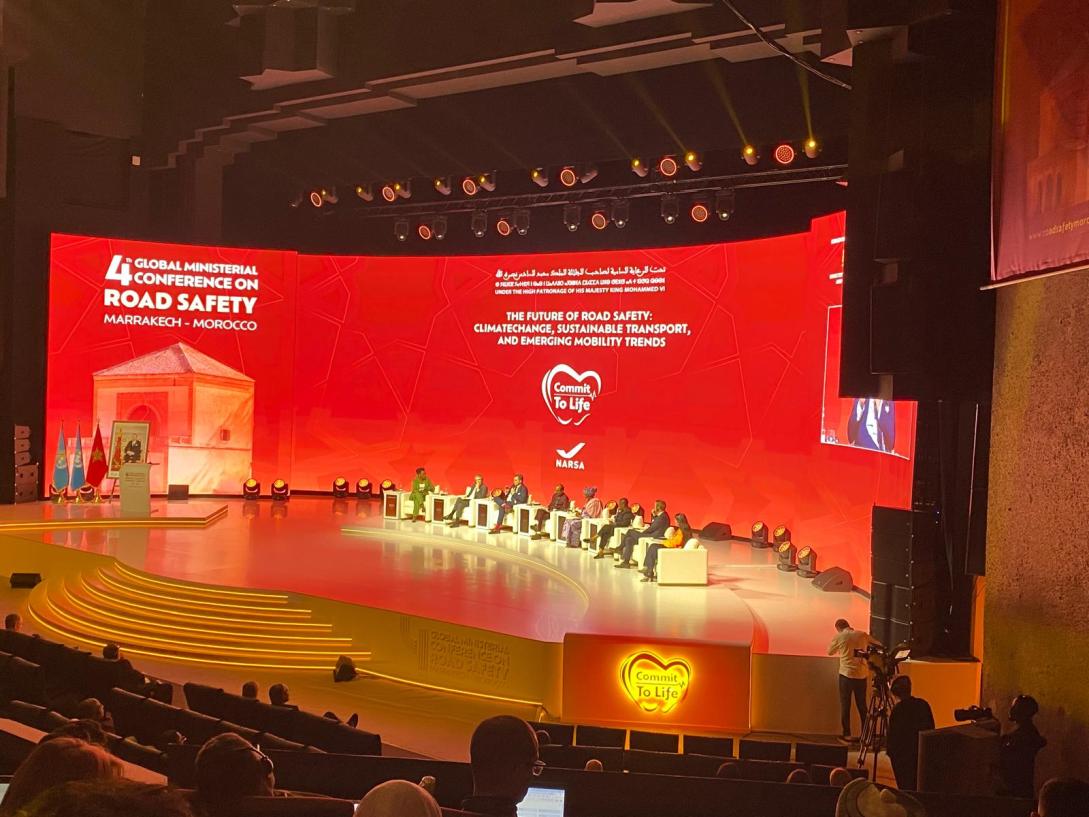The European Union unveil EU-funded technical support to the African Road Safety Observatory, hosted by the African Union Commission.

The European Commission is participating in the Fourth Global Ministerial Conference on Road Safety, taking place in Marrakech, Morocco. As a global advocate for safer roads, the European Commission is committed to driving evidence-based policymaking and supporting initiatives that reduce road casualties worldwide.
The European Commission is pleased to unveil EU-funded technical support to the African Road Safety Observatory, hosted by the African Union Commission. This collaborative effort is aimed at strengthening the observatory's capacity to address the unique road safety challenges faced by African nations.
Furthering its commitment to impactful road safety efforts, the European Commission is also finalising a grant to support civil-society organisations in Africa. This funding will bolster these organisations' ability to implement effective road safety projects and campaigns, empowering local communities to take active roles in advocating for safer road conditions.
The funding will be channelled via the Global Alliance of NGOs for Road Safety, a network of 400 civil society organizations working in 100 countries around the world, including 111 members in 31 countries in Africa. The Alliance mobilizes, represents, convenes, and amplifies the civil society road safety movement through globally coordinated advocacy, information sharing, and capacity building.
Furthermore, through Horizon Europe funding, the European Union is funding cutting-edge research on how the Safe System
can be applied to help bring down road deaths in Africa. The Afro-SAFE project aims to enhance road safety in African countries through data-driven approaches, capacity building, and policy development, while TRANS-SAFE focuses on improving transport safety in Africa by implementing innovative solutions, stakeholder engagement, and sustainable mobility strategies.
A key feature of the European Commission's involvement at the conference is a side event dedicated to the work of the EU-funded Eastern Partnership Road Safety Observatory. This initiative exemplifies the Commission's dedication to fostering regional cooperation in road safety data collection and analysis, enabling more informed policy decisions that save lives.
These strategic initiatives showcase the European Commission’s leadership in the global pursuit of safer roads. For more information on the Commission's international cooperation efforts in road safety, please visit our dedicated webpage: EU International Cooperation on Road Safety
Background
A road safety observatory is a body that collects and analyses data related to road safety, aiming to improve understanding and guide effective interventions. It supports research, shares information, and assists in developing policies to enhance road safety outcomes. Additionally, road safety observatories often work to build capacity and raise awareness about road safety challenges.
The European Road Safety Observatory
(ERSO) provides reliable and comparable data on road crashes, in-depth analysis and information on road safety trends, practices and policies in the EU. It draws heavily on CARE, a database that has provided detailed information on all road accidents resulting in death or injury in the EU Member States and EFTA countries since the early 1990s.
ERSO is part of the network of regional Road Safety Observatories (RSO) which is a global forum on road safety data, policies and practices. It promotes collaboration between existing regional RSO, namely ERSO, OISEVI (Ibero-America), ARSO (Africa), APRSO (Asia and Pacific), WBRSO (Western Balkans) and the EaPRSO (Eastern Partnership).
The Safe System approach to road safety underpins the European Commission’s road safety policy framework. It takes allowances for the fact that people make errors, which is accommodated by system design that supports safe road user behaviour to prevent crashes. As people are vulnerable, the system design is forgiving and prevents exposure to large crash impacts to reduce the probability of severe injury. System providers share the responsibility for Safe System design; and all elements of the system are strengthened in combination to multiply their effects and to ensure safety when one of the elements fails. For more see this report from the European Road Safety Observatory.





